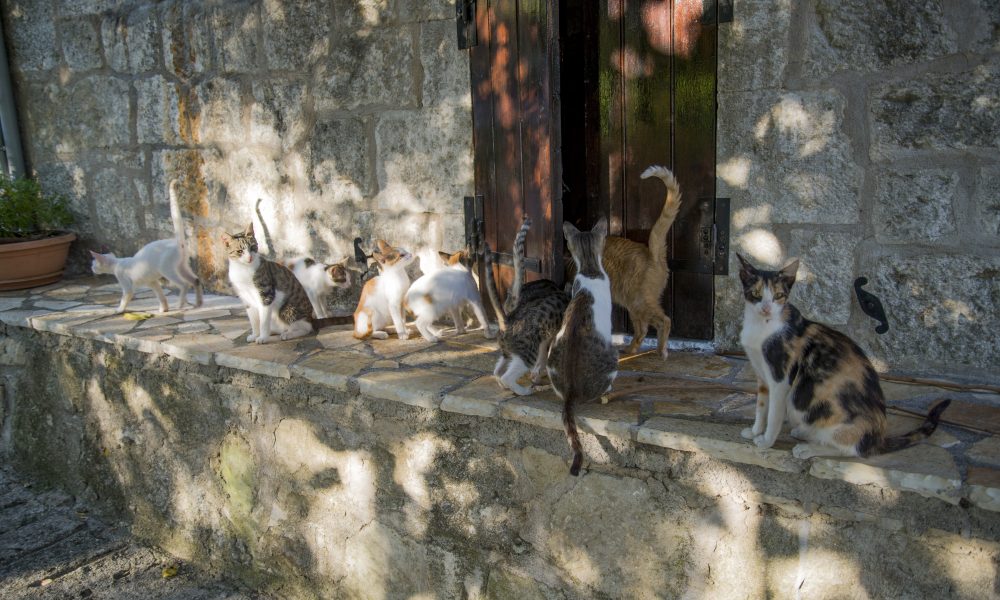Animal Action Greece has always firmly maintained that inhumane methods of culling (for example, poisoning, mass euthanasia) are ineffective methods of population control. Not only are they unethical, but they also fail to address the root causes of stray animal overpopulation.
Instead, we focus on prevention, aiming to reduce the number of strays in a sustainable and systematic way.
Culling is illegal in Greece, and the state does not carry out mass killings of strays. However, despite being a criminal offence, mass poisonings still occur, often carried out by individuals or groups who mistakenly believe they are solving the problem.
Beyond the moral considerations, it’s crucial to understand why killing animals is not a solution.
Even if all stray dogs and cats in Greece were immediately removed from the streets and placed into loving homes, the same number of strays would inevitably return over time.
Strays don’t appear by accident; they are a man-made problem. They exist because owners, either intentionally or unintentionally, have allowed their animals to produce litters they cannot rehome. Strays are also the result of unwanted pets being abandoned when demand for them exceeds supply. While illegal abandonment is a contributing factor, the issue often traces back to the broader supply-and-demand imbalance in the pet population. In Greece, this overabundance of animals cannot be accommodated by shelters or foster homes. It is both impractical and unfeasible to build enough facilities to house the millions of strays in the country.
The abandonment of pets is made easier by the anonymity of stray animals. Unlike humans, these animals cannot tell us who abandoned them. One key solution is to ‘de-anonymise’ strays by enforcing microchipping and requiring DNA sampling from unneutered pets.
The demand for pets is inelastic. Simply increasing the demand for adoption will never solve the problem – there will never be enough families to adopt every stray. Instead, the focus must be on reducing the supply.
To restore balance, the supply of unwanted animals must be reduced in a systematic and sustainable way. Rather than relying on perpetual killing, the solution lies in preventing the birth of unwanted pets in the first place. In simple terms, the most effective strategy is to focus on the percentage of owned pets that are neutered. Providing incentives for neutering and disincentives for not neutering is a far more effective and humane approach.
Countries like the UK and Spain have implemented successful sterilisation programmes that have drastically reduced the stray populations over time. By neutering pets at an early age and offering accessible neutering services to the public, these programmes have been able to create lasting, positive change in their communities.
It’s time to act. By supporting neutering initiatives, spreading awareness, and advocating for responsible pet ownership, we can work together to ensure a better future for animals across Greece.







